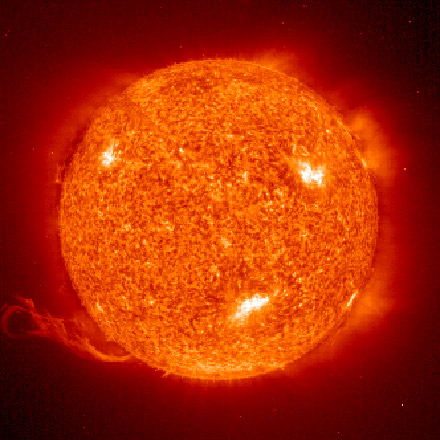The period between 2002 and 2011 was the hottest decade on record, the United Nations weather agency said Tuesday, on the second day of the global climate summit being held in South Africa, DPA reported.
This year will likely rank as the 10th-warmest year on record, the Geneva-based World Meterological Organisation (WMO) said, noting that 2011 had seen one of the most extreme occurrences of the La Nina weather cycle and its effects across the globe.
La Nina, which occurs when the central and eastern Pacific is unusually cold, has been linked to recent floods in Thailand, as well as to drought in eastern Africa and the southern United States since January.
The volume of sea ice on the North Pole reached a record low of 4,200 cubic kilometres this year.
In Russia, temperatures strayed the highest above the long-term average, climbing 4 degrees above the norm.
In contrast, parts of Australia saw unusually cool temperatures, the WMO said.
The report comes as governments meet in the Indian Ocean port city of Durban to seek a broader global agreement on reducing carbon emissions blamed for global warming and increasing extreme weather events.
The Kyoto Protocol on climate change, which now covers about 25 percent of global emissions, expires in December 2012.
Scientists have projected dire humanitarian consequences if temperature increases over the coming century are higher than 2 degrees Centigrade compared to pre industrial levels.
Even the reductions under Kyoto, added to informal commitments from more than 100 countries to lower greenhouse gasses by 2020, will not reach that goal. Instead, scientists expect temperatures to rise 4 to 6 degrees by 2100 if more severe cutbacks do not occur.
UN meteorologists: Past 10 years were hottest decade on record
The period between 2002 and 2011 was the hottest decade on record, the United Nations weather agency said Tuesday, on the second day of the global climate summit being held in South Africa.






